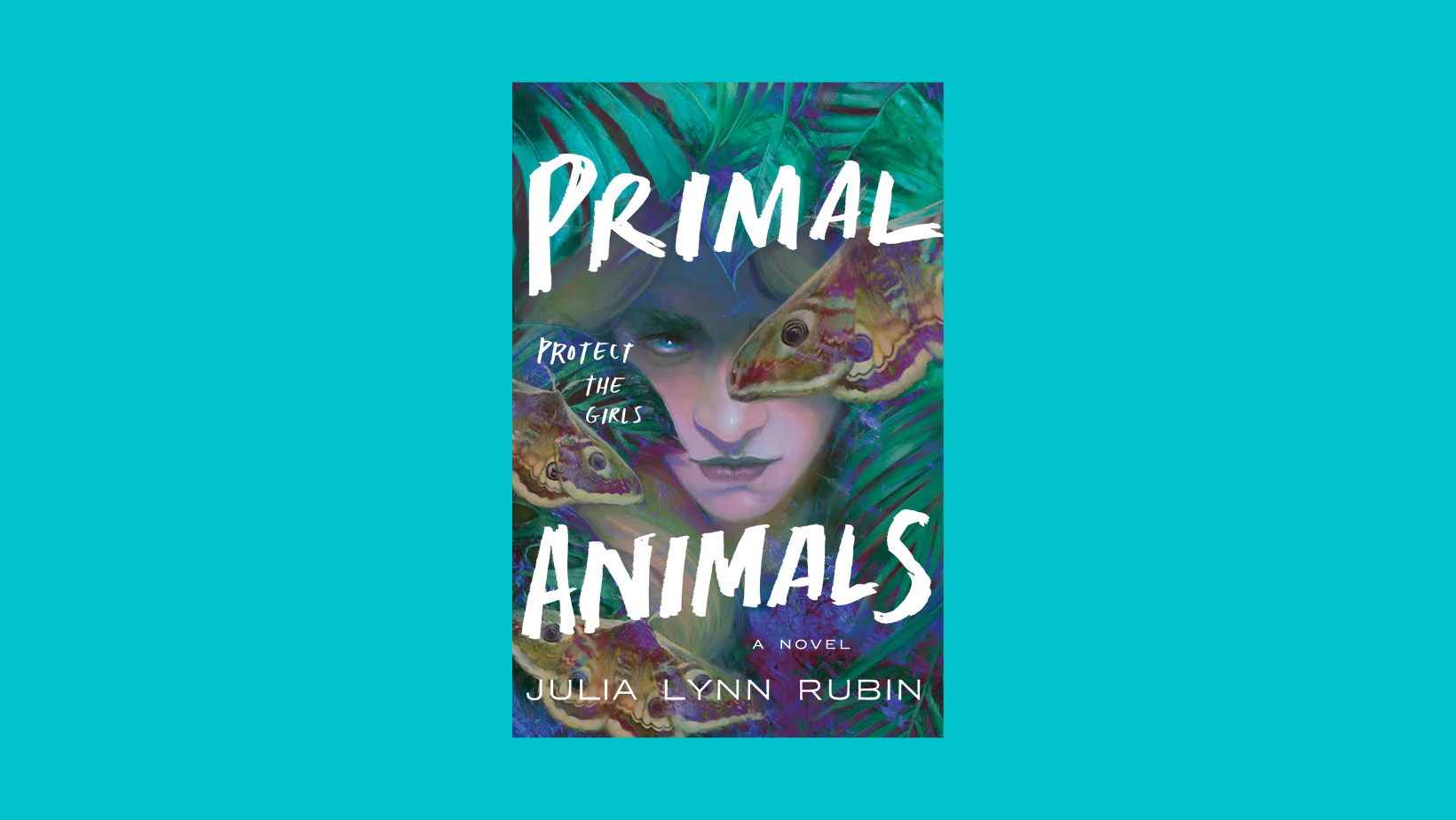In Primal Animals, Julia Lynn Rubin explores the darker elements of the human experience — our shadow self, our needs versus wants, our spine-chilling fears—and what occurs when our past reaches into our present without restraint. Placing a sapphic romance at the forefront, Rubin shatters the heteronormative boundaries of the horror genre and creates an eerie and unsettling atmosphere of taboos without room for any bigoted notions about race, gender, class, or sexuality.
The YA novel follows teen Arlee Gold as she spends the summer at the luxurious college prep Camp Rockaway. Dazzled by the glamorous camp, yet unnerved by its puzzling past, specifically, her mother’s connection to the camp, Arlee is swept into the sinister undercurrent of a secret sisterhood society where the stakes put her and her love interest in danger.
INTO: What was your inspiration behind setting a horror novel with the backdrop of a fancy summer camp?
Julia Lynn Rubin: Growing up, I attended an all-girls summer camp for eight years, and it had a huge impact on me. It was an amazing time to unplug. I wasn’t there all summer, but I’d go for two- to three-week periods. But even then, time moves differently at a summer camp; it’s this liminal space where there’s no school, teachers, parents, and you are a miniature adult dealing with your problems yourself. You foster a lot of independence and you go through a lot of things so you become extremely close with the people you live within a short timespan.
I saw that you wrote and edited Primal Animals during COVID. How did that impact the storytelling?
I was in a very dark place. I was very depressed, anxious, and feeling like I was in a hole. All of these horrible things were happening in the world, but they were happening internally to for me, as I’m sure they were for many. It was dead of winter when I was writing and I was dreaming of summer, dreaming of community which really impacted the way I wrote the book. I went back to happier parts of my life that were more communal like when I was a summer camp. And then I also wrote about a lot of just horrible feelings which was a way for me to exercise some of my own demons. I like to fictionalize my own anxiety and my pain, and I think a lot of it got out on the page.
Time moves differently at a summer camp; it’s this liminal space where there’s no school, teachers, parents, and you are a miniature adult dealing with your problems yourself.
Going off the concept of one’s inner demons, Primal Animals is a lot about exploring our shadow-selves.
As humans, we’re all complicated creatures and our shadow selves are the parts of ourselves that need to be nurtured. It’s our needs as opposed to our wants. It’s the things we didn’t get as children, the trauma we went through, and the things we weren’t given. I think in literature and film our shadow self gets portrayed as evil because it’s more exciting to show, but I think for most the shadow self is more about nurturing your inner child and trying to give yourself the things you never had. How I read the theory was that the more you embrace your shadow self and by the more you hold an awareness towards your darker impulses and tendencies, the less likely you are to do horrible things because you have more empathy.
We see Arlee struggle to connect with her mother’s legacy at the camp. How would you say a daughter’s relationship with her mother impacts her view of herself?
Children mirror their parents. When you’re a kid, especially with daughters and mothers, you revere your mother even if you have a bad relationship with your mother. Arlee’s mom treated Arlee as an extension of herself. I think when that happens the child doesn’t develop their own identity per se, or becomes fragmented and feels like they have to constantly please their parents. Arlee feels torn between what she wants and what her mom wants.
The shadow self is more about nurturing your inner child and trying to give yourself the things you never had.
How did it feel to write a sapphic horror novel?
It was amazing. I’m so excited this book exists even with everything going on politically and the book bans happening right now. It’s very much a f*ck you to all that. I love that I can write about a summer camp where a ton of the kids are queer and there is no homophobia. I really wanted to write something that was a Gen Z version of the world. All of the campers all just like, “Oh, you’re queer? Cool. What are you getting for lunch?”
Can we expect to see further installments of Primal Animals?
I don’t have anything planned but if enough people were interested, I’d be totally open to writing an epilogue, short story, or a series about what happens. There’s a lot of different ways to read my other book, Trouble Girls, which has another open ending that really confounds people and makes them feel like they’re losing their minds. But I always think there’s several ways to read the ending depending on how you read the book. Everyone takes away their own individual story.♦
Don't forget to share:
This article includes links that may result in a small affiliate share for purchased products, which helps support independent LGBTQ+ media.
Help make sure LGBTQ+ stories are being told...
We can't rely on mainstream media to tell our stories. That's why we don't lock our articles behind a paywall. Will you support our mission with a contribution today?
Cancel anytime · Proudly LGBTQ+ owned and operated
Read More in Entertainment
The Latest on INTO
Subscribe to get a twice-weekly dose of queer news, updates, and insights from the INTO team.
in Your Inbox













